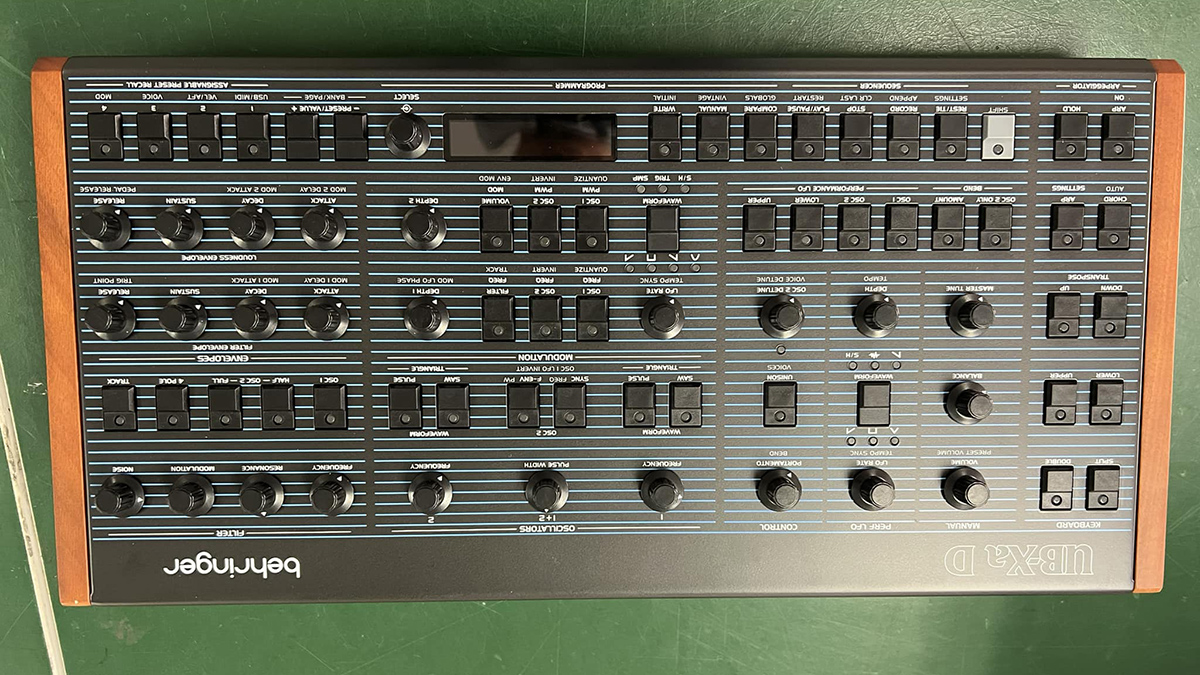Behringer says that it plans to “turn the synth world upside down” with a desktop version of its Oberheim-inspired UB-Xa
Downsized UB-Xa D ditches the 61-note keyboard

Three months on from the keyboard version of the Behringer UB-Xa going on sale, Behringer says that it’s planning to “turn the synth world upside down” with the release of a desktop model.
Quite what this means we’re not sure - the only thing turned on its head so far is a photo of the new instrument - but for those who want a more compact and affordable emulation of the Oberheim OB-Xa synth, the release of the UB-Xa D (D standing for Desktop, we assume) could be welcome news.
Of course, this being Behringer, putting a date on that release is pretty much impossible - the company is known for teasing products on Facebook well ahead of their actual launches - but, given that the synth engine for this one is already in place, we’re hopeful that it won’t be too long in the oven.
Although the UB-Xa D loses the UB-Xa’s 61-note aftertouch keyboard, we’re assuming that the majority of the synth’s other features - VCOs and VCFs that are “heavily based” on the originals, 16 voices, 512 program memories, MIDI support and eight vintage modes, for example - will remain. Given that the keyboard version costs $1,199, we’d expect the price to be less than $1,000, but this is still to be confirmed.

Want all the hottest music and gear news, reviews, deals, features and more, direct to your inbox? Sign up here.



I’m the Deputy Editor of MusicRadar, having worked on the site since its launch in 2007. I previously spent eight years working on our sister magazine, Computer Music. I’ve been playing the piano, gigging in bands and failing to finish tracks at home for more than 30 years, 24 of which I’ve also spent writing about music and the ever-changing technology used to make it.